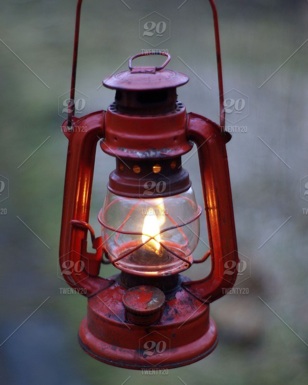Century of Change
Memory is your own history book. So sit back, relax, and review how your world changed through the years.
Before you do so, however, come along with me for a look at how things changed in just one short century.

I entered life in a house without electricity or running water. Heat for warming the house and cooking was a wood burning stove. The light source was kerosene burning lamps.
Horse drawn wagons and buggies were still the mode of transportation for many families. Around age four, the family moved to a “modern” home with indoor plumbing and electricity “downtown.” The household goods were moved in a horse drawn wagon, and I rode in the wagon seat with Ed Chapel, the wagon owner/driver.
Motor vehicles were beginning to show up on the roads by then. You could not, however, just get in a car and drive off. The engine had to be started by a man turning the crank hanging under the radiator. When the pistons finally fired, if he was not quick enough in disengaging the crank, that whirling crank might break an arm.
Once the gas guzzler was up and running, it would be refueled at a “service station.” The driver would pull in, wait for the server to come out to ask, “How many?” When the answer was something like “five,” the server would go to the pump and actually pump five gallons into the glass cylinder above the pump. After draining the five gallons of gas into the vehicle, the server would wash the windshield, check the oil and tire pressures, and ask, “Would you like the car swept out?”
Regardless of the size of the town, as the driver left the service station, he would probably pass the Tin Smith’s shop. That’s where cisterns were being made, as chronicled by Sharon Brass in “The Burning of Brenham” and in Toubin Park in downtown Brenham.
He would also pass one or more blacksmith shops, several shoe shops, where shoes were resoled or repaired instead of just being thrown away. Along the way, he might pass a radiator shop or a muffler shop where leaky radiators and mufflers were repaired or replaced.
Back home, he would see three of those #2 tin tubs on the wash bench outside. A little further out would be the cast iron wash pot sitting on bricks to hold it above the wood fire needed to boil the water for washing clothes.
For many years, one of those tin wash tubs would be used for the once-a-week family bath on Saturday. The bath order was always Dad first, then Mom, followed by the children in order of age.
All of this in one tub of water. That is the source of the old saying “Don’t throw the baby out with the water.”
Then, as he entered home through the back door, he would stop by the ice box on the back porch to chip a small piece of ice off the 50 pound block for a glass of cool water.
The ice box was on the back porch so that a hole could be drilled in the floor for a tube to drain the melt out of the ice compartment onto the ground. It was also there so that the ice man could deliver new blocks of ice without disturbing the homeowner.
There was no telephone in either of my first two homes. When we finally got one in the third house, it was a large monstrosity that hung on the wall. To make a call, you had to turn a small crank on the side of the contraption and tell “Central” the number you wanted.
In my home town of Somerville, Central was Miss Annie. You did not have to give Miss Annie a number. Just say, “I wanna talk with Joe.” Sometimes she might reply, “Joe is not home; he just left to visit Jim.”
So here’s the perspective.
Rouse yourself now and come back into today. Press that little button in your hand and start the car out in the garage to warm it up or cool it down before you get in to go to town.
As you leave home, do not forget to put that little telephone in your purse or pocket. Along the way to work you may want to tell it, “Hey, Siri, call Joe.” Then you are immediately connected with Joe and can (but, for safety reasons, should not) talk with Joe as you drive to your destination.
This is just a tiny fraction of the way the world has changed in my 91 years of being part of it.
How about you?
enough





